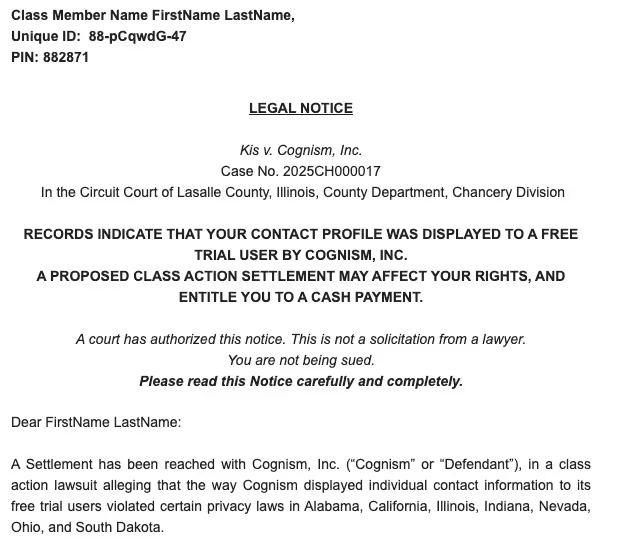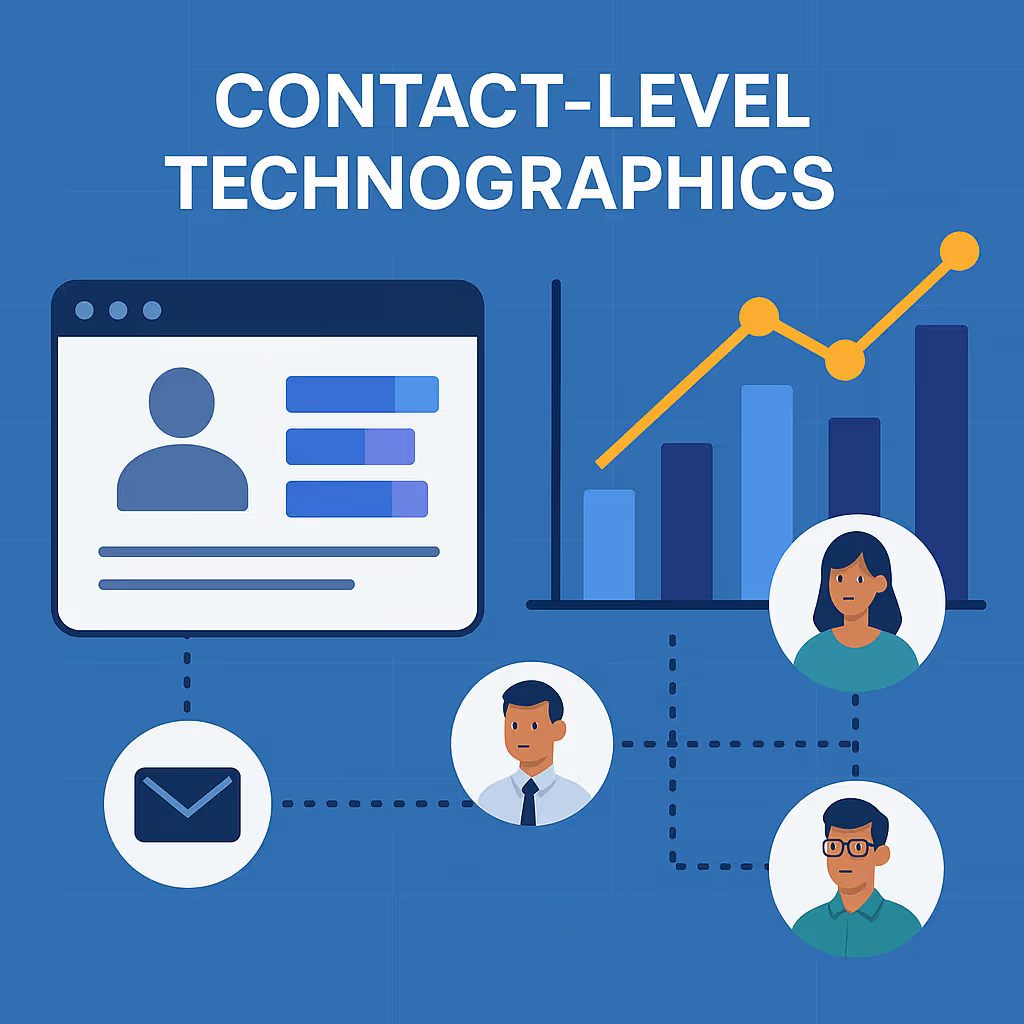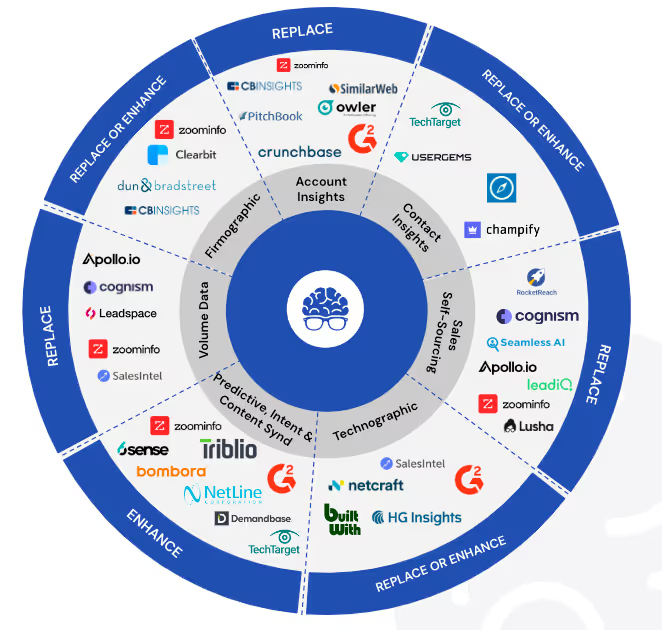The notice looks, at first glance, like legal boilerplate. A class action, a settlement, a claim form. The sort of email most people ignore. But hidden inside Kis v. Cognism is something much bigger: a crack forming in the foundation of the B2B data industry.
Cognism, one of the international players in sales intelligence, has agreed to settle allegations that it improperly displayed individuals’ contact information to free trial users in violation of state privacy laws. The numbers aren’t huge—$22.50 for a California resident, $150 for someone in Alabama—but the implications could be.
The Pattern: ZoomInfo, Apollo, Seamless
We’ve seen this movie before. ZoomInfo has faced lawsuits for similar privacy violations, including claims around displaying personal information without consent. Seamless.AI and Apollo both had their LinkedIn pages yanked offline in 2024 after reports surfaced that their scraping and display practices ran afoul of LinkedIn’s terms of service.
The connective tissue here is obvious: the data business has been built on a kind of legal arbitrage. These firms aggregate personal and professional data—emails, phone numbers, job histories, sometimes more—without explicit consent, and then sell access to it. For years, this practice existed in a gray zone, tolerated because it fueled sales pipelines and didn’t spark public outrage. But the tide is shifting.
Why This Matters
What makes the Cognism settlement especially consequential is geography. Unlike ZoomInfo, which has largely battled U.S. regulators, Cognism has built its reputation on international coverage—Europe, Asia, emerging markets. And the global regulatory environment is much less forgiving. GDPR, LGPD, CCPA—pick your acronym, the trendline is the same: stronger data rights, higher penalties, less room for “move fast and scrape things.”
A U.S. class action like this could be just the beginning. If regulators in Europe, for example, take notice, the liabilities could grow exponentially. A $22.50 payout in Illinois is one thing; a multimillion-euro fine from the EU is another.
The Marketplace Impact
The broader data space is entering a legitimacy crisis. Buyers—CROs, CMOs, RevOps leaders—are already asking harder questions about where their data comes from. Vendors pitch “coverage,” but at what cost? If the databases they rely on are tainted by lawsuits, takedowns, or sudden compliance shifts, the sales orgs depending on them are left holding the bag.
The Cognism case could accelerate a shift already underway: from static, prebuilt data lakes (ZoomInfo, Apollo, Cognism) toward real-time, consent-driven, bespoke data solutions. The future of the industry may look less like giant warehouses of scraped contacts, and more like just-in-time pipelines tuned to each buyer’s market, with transparency built in from the start.

The Big Picture
This is, ultimately, a story about trust. Trust in the data buyers are using, trust in the legality of the methods behind it, trust that the names in your CRM aren’t ticking legal time bombs. For years, the industry has prioritized scale over consent, coverage over compliance. But scale is no longer enough.
The Cognism settlement is a warning shot. It tells us the era of shrugging off lawsuits as the cost of doing business is closing. And it forces a harder, more uncomfortable question: what happens to the $30 billion sales intelligence market when the databases start to crumble under their own legal weight?
That’s not just Cognism’s problem. That’s the prebuilt database industry’s issue.




